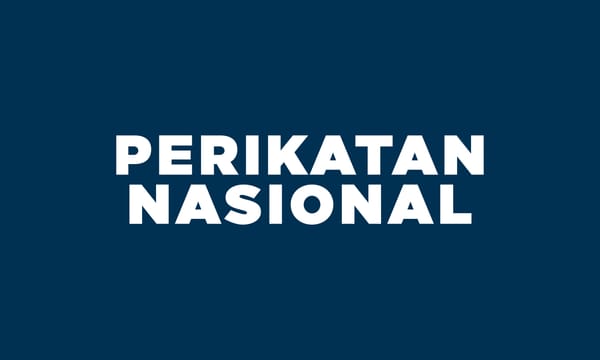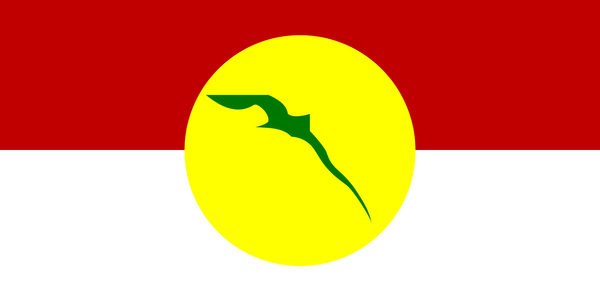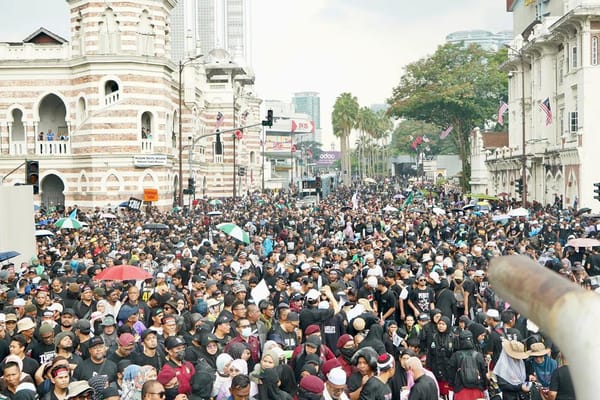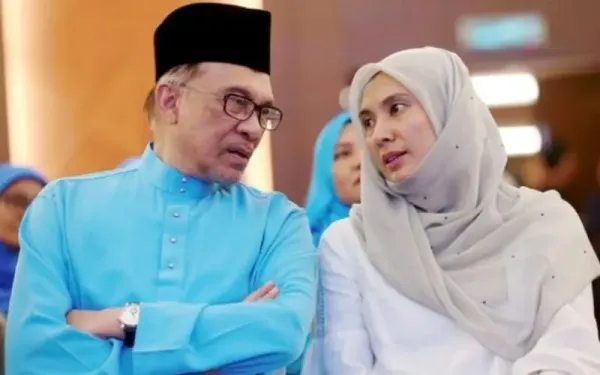Massive dip in press freedom ranking under Madani govt a wake-up call for Anwar
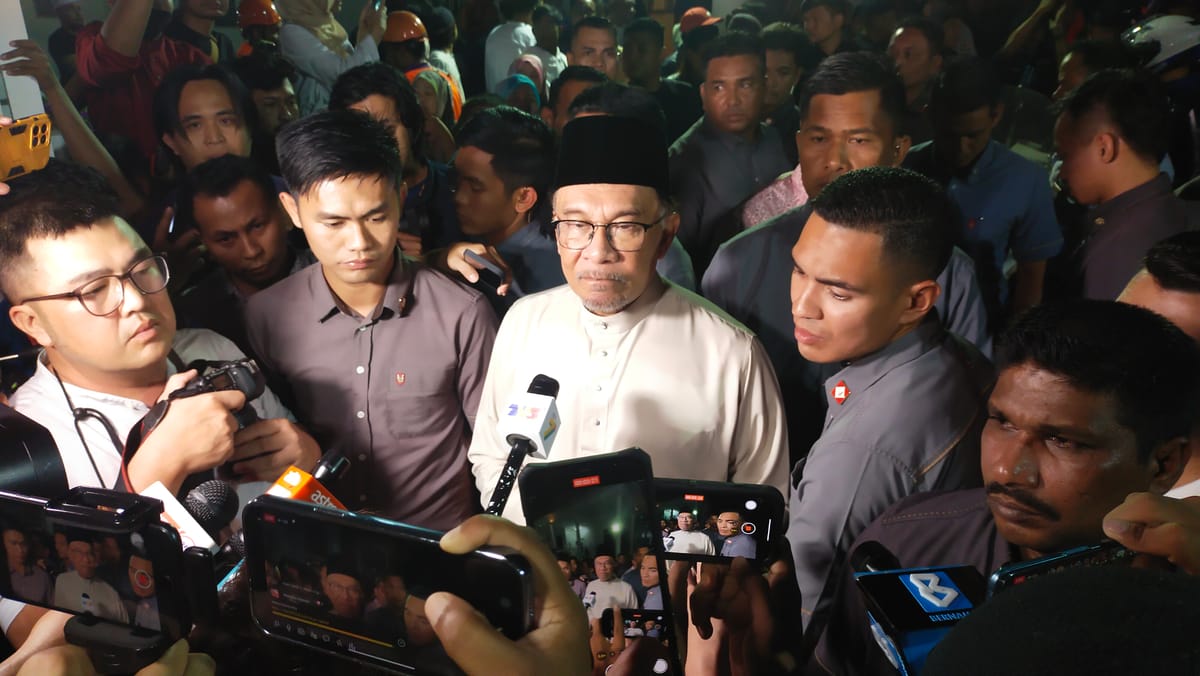
On May 3, the Madani government has gotten itself a warning on what direction it is taking the country with regards to democratic rights and civil liberties as Reporters Without Borders (RSF) released its annual World Press Freedom Index 2024 - which showed that Malaysia’s standing in the Index has declined by 34 places to 107th compared to 73rd last year.
The report also showed that Malaysia’s score now stands at 52.07 points. In contrast, Malaysia scored 62.83 points last year as it jumped 40 places to 73rd compared to 2022 when it was at 113th with 51.55 points.
A ranking of 107th means Malaysia has fallen behind its neighbour Thailand (87th). However, it is still second overall among ASEAN countries, ahead of Indonesia (111th), Brunei (117th), Singapore (126th), the Philippines (134th), Cambodia (151st), Laos (153rd), Myanmar (171st) and Vietnam (174th).
To be honest, Malaysia having performed slightly better in press freedom records than its ASEAN peers is not something worth bragging about given the fact that this region has an awful record when defending press freedom.
Such a damning report on the state of press freedom in Malaysia is the second one to have come from international organisations in recent months after Amnesty International claimed last month that freedom of expression in Malaysia had declined after more than a year of the unity government’s administration.
Of course, the denial was expectedly swift from the government. Communications minister cum government spokesman Fahmi Fadzil said that the present ranking is still good compared to the record held by Malaysia under previous governments that were led by Barisan Nasional and Perikatan Nasional - where the country was ranked 119 in 2021 and 113 in 2022.
He had also denounced Amnesty’s findings by saying that no journalist had been arrested or any news portal shut down in the time that the Madani government had been in power.
At this point, it is worth posing these questions to Fahmi: If you are right, then why is our press freedom ranking rapidly declining? We were ranked at 73rd last year, and now we are at 107th place. What went wrong, Fahmi?
It appears that Fahmi is ignoring recent developments in the country’s news industry that may have influenced RSF’s ranking.
Media card issue
Last month, Malaysiakini reported that new press ID cards for journalists from online media outlets would have shorter validity periods. A later report quoted the Information Department (JAPEN) as saying it was “reviewing the SOPs for issuing media cards”. Media tags for local journalists are usually valid for two years, while journalists working for foreign media organisations (like Reuters, Bloomberg and Al Jazeera) are given a one-year pass.
When asked about the restriction, Fahmi said that it only applies to newly-formed online news outlets, not the existing ones (like FMT, Malaysiakini, and The Edge Malaysia). He also defended the restriction imposed by the government, citing “abuse by certain quarters” and the need to scrutinise newer media outlets that have sprouted up lately.
Seriously Fahmi, what is wrong with having more online media outlets propping up in Malaysia? How is that something that constitutes a threat and needs to be subjected to heavy scrutiny? In a free market economy like Malaysia, isn’t it good to have more and more products for our consumers to choose from?
Isn't it good to have more news media outlets that can function as watchdogs for the government? Doesn't Fahmi want this government to be subjected to more scrutiny by the press, even for its own good?
The backlash was swift from the journalist associations, with the National Union of Journalists asking the government to be upfront about this review on the issuance of media cards. In a statement, the union said the government should focus on reviewing the Printing Presses and Publications Act and establishing the media council instead of changing the terms for the issuance of media cards.
The union also said that reducing the validity period for media cards for any journalist would be a step backwards in terms of media freedom. “It looks like the more we ask for press freedom, the more they try to control and take it back in other ways,” said the union in that statement.
Crackdown on opposition-owned/affiliated media outlets
Last November, JAPEN revoked the press passes of Harakah, the mouthpiece of the Islamist party PAS. It was reported that JAPEN revoked the press passes for Harakah after it published an article displaying a photo of Prime Minister Anwar Ibrahim with an Israeli flag - which insinuates that the prime minister is pro-Israel.
On the other hand, MalaysiaNow - an online news outlet that is Perikatan Nasional-friendly (and rumoured to be owned by a PN politician) has complained that its site has been blocked several times since last year.
Is it a well-known fact that Harakah is no stranger when it comes to writing content that were allegedly defamatory to many politicians. Ask Mat Sabu, Lim Guan Eng or even Prime Minister Anwar Ibrahim about it. The Islamist party's mouthpiece's frequent subject to defamation suits seems to show that it does not subscribe to journalism ethics that emphasise responsible reporting that is free from slander and falsehoods.
It is also a well-established fact that MalaysiaNow would never publish reports that paint the Madani government in a rosy picture, given its alleged affiliations with PN.
But to implement crackdowns on these media outlets reeks of authoritarianism by this Madani government. If the Madani government wants to counter the racial and religious rhetoric and slanders coming from PN effectively, it would have to solidify its messaging (or propaganda) strategies to counter this rhetoric, not commit censorship.
Maintaining oppressive laws
The government’s decision to retain oppressive laws such as the Sedition Act 1948, Section 233 of the Communications and Multimedia Act 1998, the Printing Presses and Publications Act 1984, and the Official Secrets Act 1972 also contributes to the worsening press freedom record in the country.
These laws pose massive hurdles to journalists in carrying out their duties in holding people in power accountable for their wrongs. I think many in the news fraternity still remember how Najib Razak’s government suspended dailies owned by The Edge Media Group for three months back in 2015 due to their reports on the 1MDB scandals. The Printing Presses Act was used to suspend those dailies.
Pakatan Harapan (PH) campaigned on repealing these laws back in the 2018 and 2022 general elections, and yet it failed to do so once it came into power. The coalition’s constant reneging of its reform pledges to do away with repressive laws is why Malaysia's press freedom record is worsening.
Embarrassing record for “reformist” Anwar
This massive dip in press freedom ranking for Malaysia (compared to 2023) is indeed an embarrassment for Prime Minister Anwar Ibrahim, who had been branding himself as a reformist from the year he founded the “Reformasi” movement back in 1998 till now.
At present, the reformist image he cultivated over the years - in both domestic and international stages - is being disputed by domestic critics due to the slow pace of institutional reforms and other reforms on human and democratic rights undertaken by the Madani government.
The dip in the press freedom ranking would further dent his reformist image, and risks getting the PH president lumped in together with his predecessors who have been autocratic in their relationship with the news industry such as Dr Mahathir Mohamad (as PM IV), Najib Razak and Muhyiddin Yassin.
Anwar must immediately realise that his government’s quest to combat misinformation and fake news based on the 3R (race, religion, and royalty) rhetoric has backfired as the government’s present moves have resulted in a worsening press freedom record for Malaysia.
He must also realise that clamping down on press freedom by restricting the operations of media outlets in this country is antithetical to the reformist messaging that he has been preaching over the years. If he wants to be remembered in history books as a reformist who ushered Malaysia to a new age of democracy, his government's current conduct with the press will deprive him of the chance.
Hence, it is time for the Madani government to repeal or amend oppressive laws that are hindering press freedom in the country.
Don't entertain the advice of conservative politicians, civil servants and the police for these laws to be retained. These laws have become relics that need to be discarded if Malaysia wants to be more democratic, and these conservatives (by their nature) are refusing to acknowledge the reality.
Don't treat the press like your adversaries, Anwar. Journalists would prefer to work in an open, democratic environment that you would eventually create by doing away with the repressive laws.
Journalists do not want to work in the repressive environment created and fostered by the past Barisan Nasional (BN) and PN government. Therefore, do not fail them, Anwar, for they are never your adversaries.
-END-
Note to readers:

